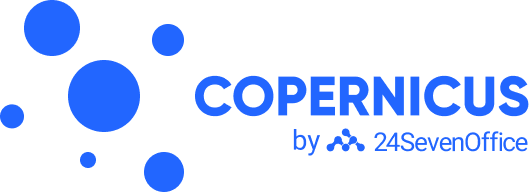Scania upgrades to SilberPlan version 9.0
2013-01-25Learning between Projects
2013-03-05Good habits
Acting based on the roles agreed upon is, for me, a good habit in project work. It is basically about understanding that it is people in different contexts that take a project from start to finish. The roles together with a project model provide “a fundamental system” to work from and with it security. One can always go back to basics if coordination does not work, or one can make departures from them when needed. But if many or a few people act based on their own views, it is my experience that the work becomes energy-intensive. Employees usually also create irritation and muck up things for each other.
There are several roles described within the project world. For example there are customers, sponsors, business managers, project managers, project coordinators, project employees, resource managers, immediate line managers, and so on. Countless books, articles, and corporate instructions have certainly been written on these concepts, but I thought I would nonetheless briefly reflect on this theme.
Every project must have a customer. As synonyms, terms like assigner, principal, and sponsor are used. This role’s primary task is to find resources and financing for the project, but above all secure the benefit of the project. The customer is responsible for the deliverables from the project supporting the organization’s goals and plans, and this is particularly why he or she must always ‘be passionate about’ the project and its progress. As a customer, one should always have the good habit of ensuring that the project is well run through all of its different phases and that it will create the desired benefit for the business.
Simply put, it is the project manager’s job to ensure that the project achieves the target. In our day-to-day, the project role can mean everything from being an administrator, to a coordinator, to a person with the mandate and power to manage a temporary organization with all of its ‘employees’. A good habit is to always identify and document what responsibility and what authority a project manager has. This is why documents such as project directives and project plans are so fundamental when choosing to use the project work form.
Being a project member means being a ‘multi-manger employee’. One collaborates and reports both to the line manager and to one or more project managers. To be able to do a professional job, one must be aware of the objectives of all projects and the scope of one’s own work and one’s own contributions. Clarifying deliverables (partial results), work methods and availability of time and resources are good habits. Work tasks from several directions can also easily lead to having ‘a lot to do’. This is why it is important to speak up and say when such situations arise. This good habit gives project managers and managers the opportunity of using their good habit of prioritizing between various work tasks or, when necessary, changing the availability of various kinds of resources.
In Sweden, line managers that supply the project with resources are usually called resource owners or resource managers. When it comes to human resources, they should perhaps be called ‘responsible employees’. Here there is also a good habit that increases clarity and advance planning. When the line manager loans or sells out personnel or resources to the project manager, the three-hoofed agreement between the line manager, project manager and employee should be documented, perhaps in a resource agreement or in some other appropriate manner. If, on the other hand, the project manager buys results from the line manager, the agreement should be documented in a project plan or an internal agreement.
When a project is started in an organization, the project and the ordinary business is tied together through a steering committee in which the collaboration between the customer and project manager is realized.
The more projects started, the more customers must be synchronized with the business’ overall targets and plans – a task that is not always so easy and can often require some form of IT support. But a good habit is to identify and clarify the person or the group that has the task of managing and directing the whole. I usually talk about this being a job for the coordination group and/or the role of the business prioritizer. They manage according to agreed upon routines, the available resources and the overall business targets.
Good habits are not only about roles, but as I wrote by way of introduction “it is people in different contexts that take a project from start to finish”. For me, good habits mean the opportunity of taking advantage of the employees’ know-how and abilities. That the organization becomes as strong as possible when it is most needed. Good habits in a project-intensive business are demanded and secured by the management at all levels. Good habits are implemented by everyone.
Yours truly/Anders Blomé
